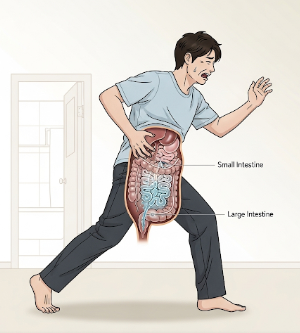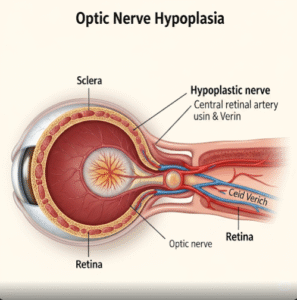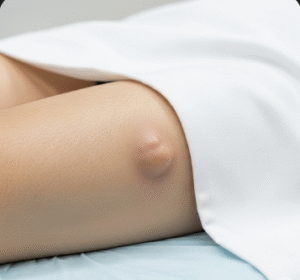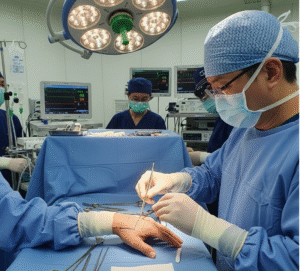Overview
Frequent bowel movements (FBM) refer to passing stools more often than usual, typically more than three times per day. While occasional increases in bowel frequency are often benign, persistent frequent bowel movements may indicate underlying gastrointestinal disorders, infections, or systemic conditions. In Korea, gastroenterology clinics specialize in evaluating and treating FBM, using diagnostic tools like stool analysis, colonoscopy, and laboratory tests, combined with personalized treatment plans to restore normal bowel function and overall gut health.
Highlights:
➤ Defined as more than three bowel movements per day
➤ Can be caused by infections, inflammation, or functional gastrointestinal disorders
➤ Early evaluation helps prevent complications and ensures proper management
Key Facts
➤ Prevalence: Common, especially in patients with gastrointestinal disorders or dietary changes
➤ Age affected: Can occur at any age; chronic FBM more common in adults
➤ Gender: Affects both males and females
➤ Impact: May lead to dehydration, nutrient deficiencies, and reduced quality of life
➤ Prognosis: Usually resolves with appropriate treatment of the underlying cause
What are Frequent Bowel Movements?
Frequent bowel movements are characterized by an increased frequency of stools, which may vary in consistency, volume, and urgency. Features include:
- Loose or watery stools (diarrhea) in infections or malabsorption
- Urgency to defecate, often interfering with daily activities
- Small, frequent stools in irritable bowel syndrome (IBS)
- Accompanied symptoms: Abdominal cramps, bloating, and gas
FBM can be acute, lasting a few days due to transient causes like infections, or chronic, persisting for weeks or months, suggesting more serious underlying conditions.
Highlights:
➤ FBM can be a symptom of minor dietary issues or serious gastrointestinal disease
➤ Consistency, volume, and associated symptoms guide diagnosis
➤ Chronic FBM requires medical evaluation
What Symptoms Are Related to Frequent Bowel Movements?
➤ Abdominal cramps and discomfort
➤ Bloating and excessive gas
➤ Urgent need to defecate
➤ Loose, watery, or unformed stools
➤ Presence of blood or mucus in stool
➤ Fatigue or weakness due to fluid and electrolyte loss
➤ Weight loss if associated with chronic malabsorption or disease
Highlights:
➣ Symptoms help differentiate between functional and organic causes
➣ Urgency, blood, or systemic symptoms indicate more serious pathology
What Causes / Possible Causes
➤ Infections: Bacterial, viral, or parasitic gastroenteritis
➤ Irritable Bowel Syndrome (IBS): Functional disorder with altered bowel habits
➤ Inflammatory bowel disease (IBD): Crohn’s disease or ulcerative colitis
➤ Malabsorption syndromes: Celiac disease, lactose intolerance, or pancreatic insufficiency
➤ Medications: Laxatives, antibiotics, or chemotherapy agents
➤ Dietary factors: Excessive fiber, caffeine, or artificial sweeteners
➤ Systemic illnesses: Hyperthyroidism, diabetes, or chronic infections
Highlights:
➣ Causes range from mild dietary issues to serious gastrointestinal diseases
➣ Accurate diagnosis requires medical evaluation, laboratory tests, and sometimes endoscopy
When Should I See My Doctor?
➤ Persistent frequent bowel movements lasting more than 2–3 weeks
➤ Presence of blood, mucus, or black stools
➤ Unintentional weight loss or malnutrition
➤ Severe abdominal pain, fever, or dehydration
➤ History of chronic gastrointestinal disease
Highlights:
➣ Early consultation at a Korean gastroenterology clinic ensures correct diagnosis
➣ Prevents complications like malnutrition, dehydration, or worsening disease
Care and Treatment
➤ Initial assessment: Medical history, stool analysis, and physical examination
➤ Dietary modifications:
- Avoid irritant foods, excess caffeine, and artificial sweeteners
- Incorporate soluble fiber to normalize stool consistency
➤ Hydration: Maintain adequate fluid and electrolyte balance
➤ Medications: - Anti-diarrheal agents (e.g., loperamide) for symptomatic relief
- Antibiotics for confirmed bacterial infections
- Probiotics to restore gut flora
➤ Treatment of underlying conditions: - IBS management with lifestyle modification and medications
- IBD treatment with anti-inflammatory drugs or immunosuppressants
➤ Monitoring: Track stool frequency, consistency, and associated symptoms
Highlights:
➣ Care combines symptomatic relief, dietary modification, and disease-specific treatment
➣ Proper monitoring prevents complications and recurrence
Treatment Options in Korea
Medical Treatments:
➤ Gastroenterology clinics: Comprehensive assessment with stool tests, blood work, and colonoscopy
➤ Dietary counseling: Personalized nutrition plans for gut health
➤ Medication management: Symptomatic relief and treatment of underlying gastrointestinal disorders
Advanced Procedures:
➤ Endoscopy: Colonoscopy or upper GI endoscopy to evaluate chronic cases
➤ Imaging studies: Ultrasound, CT scan, or MRI for structural assessment
➤ Hospitalization: For severe dehydration, infection, or complicated IBD
➤ Follow-up care: Regular evaluation of bowel habits, stool characteristics, and disease progression
Rehabilitation & Follow-Up Care:
➤ Education on diet, lifestyle, and early recognition of complications
➤ Monitoring for fluid balance, nutrient absorption, and disease activity
➤ Multidisciplinary support for chronic gastrointestinal disorders
Highlights:
➣ Korean clinics provide comprehensive evaluation, advanced diagnostics, and individualized treatment
➣ Early intervention improves quality of life and prevents complications













